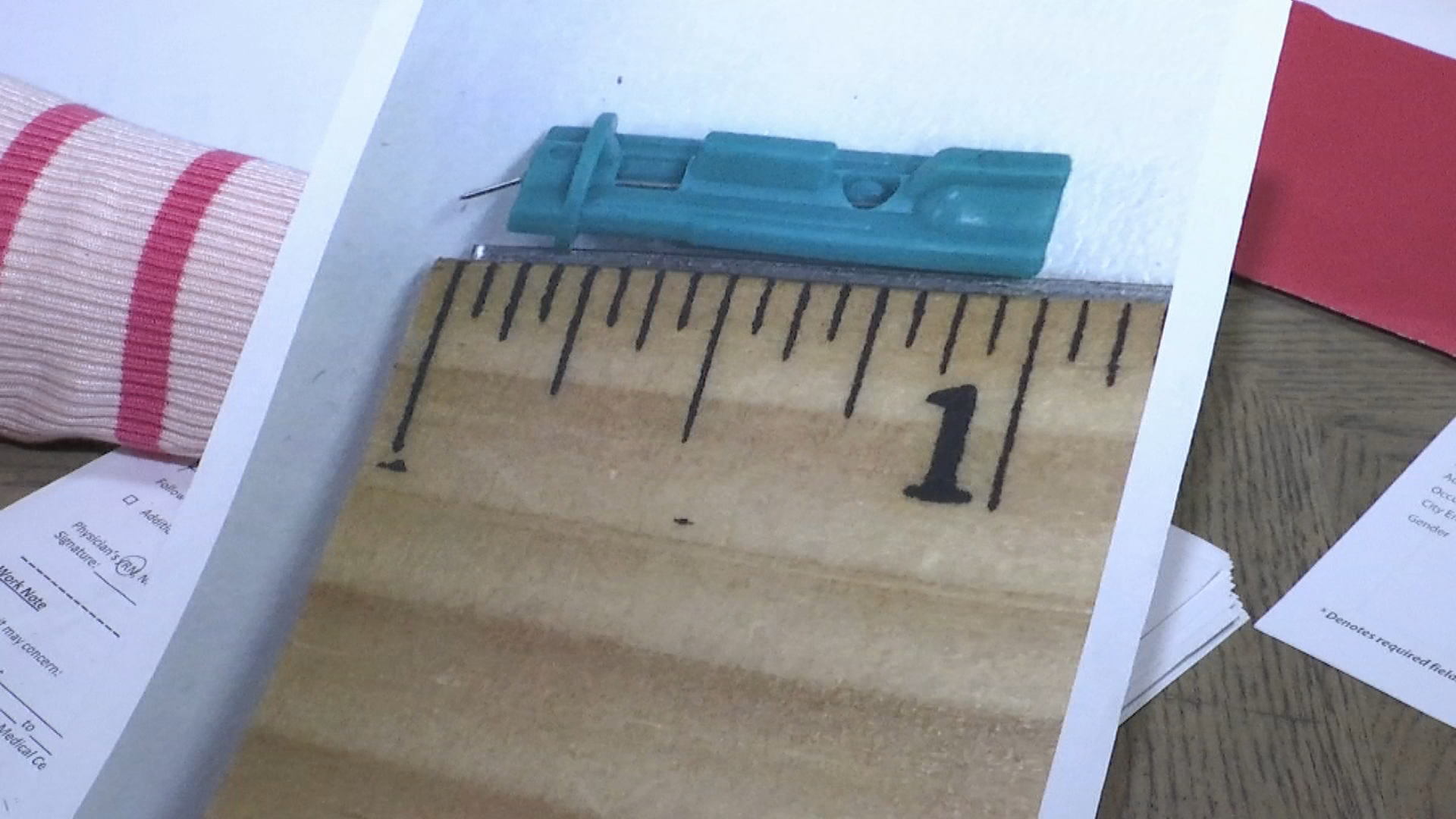[ad_1]
FORT LAUDERDALE, Fla. — The lawyer for folks suing to overturn Florida Gov. Ron DeSantis’ govt order banning sturdy pupil masks mandates informed a decide Thursday that it violates the authority of faculty districts to resolve well being points on their campuses — one thing the governor’s lawyer strongly disputed.
Craig Whisenhunt informed Circuit Decide John C. Cooper that DeSantis is endangering youngsters by not letting districts observe tips issued by the federal Facilities for Illness Management and Prevention, which recommends that youngsters be masked in school.
He pointed to Florida’s skyrocketing COVID-19 instances and hospitalizations for the reason that delta variant took maintain in June, together with amongst youngsters. A number of Florida youngsters’s hospitals have just lately reported that they’ve extra COVID sufferers than any time beforehand.
“Regardless of that actuality, regardless of all the science, the governor has sought to insert himself into issues of native well being issues and impede the flexibility of faculty boards to do what they’re constitutionally mandated to do, which is to function and management their colleges,” Whisenhunt informed the decide. The Tallahassee listening to, concluding a four-day trial, was held on-line due to the pandemic.
However Michael Abel, an lawyer representing DeSantis and the state, argued there are broadly divergent opinions amongst docs over whether or not masks cease the illness’s unfold, significantly at colleges. Provided that, the governor has the authority to aspect with mother and father who consider it’s their proper to resolve what’s finest for his or her youngsters and never college boards or different mother and father, Abel argued.
“Dad and mom know their very own youngsters higher than their academics know them. Higher than their youngsters’s docs know them. Higher than college directors know them. Higher than college district representatives know them,” he stated. “They usually positively know their youngsters higher than the opposite mother and father of the kids of their class.”
Cooper’s choice, which he expects to subject Friday, will, for now, resolve the legality of strict masks mandates imposed in 10 of the state 67 countywide college districts, together with a lot of the largest. Defying the governor and the state Board of Schooling, the districts have stated college students should put on masks at school except their mother and father present a be aware from a health care provider. The districts signify about half of the state’s 2.eight million public college college students.
DeSantis has stated districts might solely impose a masks mandate if mother and father can decide their little one out with a be aware from themselves. A couple of districts have performed that, however most districts have left it as much as mother and father. Either side have indicated that in the event that they lose, they’ll enchantment Cooper’s choice to a better court docket.
The listening to comes as DeSantis threatened two districts, Broward and Alachua, and their boards with extra drastic however unspecified punishments if they do not revoke their mandates. The districts, which cowl Fort Lauderdale and Gainesville, have stated they won’t again down. The state has already threatened to withhold funding equal to the 2 district’s college board salaries, an quantity that will be lower than 1% of the districts’ budgets.
“That may occur very quickly,” DeSantis stated of the elevated penalties throughout an Orlando information convention. “After which I do know there’s mother and father who’ve had their rights taken away who’re going to pursue authorized motion.”
DeSantis has not but gone after the opposite eight districts which have imposed sturdy mandates, together with those who cowl Orlando, Tampa, Jacksonville, Tallahassee and West Palm Seashore.
Throughout Thursday’s closing arguments, Whisenhunt stated the governor’s order towards masks mandates is completely different than an earlier pandemic program by means of which DeSantis gave districts extra cash in the event that they went again to in-person lessons. Courts upheld that program, one thing DeSantis’ attorneys have cited on this trial, however Whisenhunt stated that is completely different as a result of he’s punishing districts that defy him.
“What now we have now’s a directive from the governor to impose a restriction on college boards’ potential to do their job beneath the specter of a lack of funding,” Whisenhunt stated. “He’s not tempting them with a carrot; he’s beating the college boards down with a stick.”
He stated that whereas DeSantis argues he’s defending the rights of fogeys who don’t desire their youngsters to put on masks, he’s additionally violating the rights of these mother and father who consider that masks defend their youngsters. Most docs say masks primarily forestall the wearer from expelling the virus, giving safety to others.
“Our mother and father are being pressured to decide on between their kid’s proper to an training and their kid’s proper to be secure,” Whisenhunt stated.
Abel argued that Florida has an academic hierarchy wherein districts do have substantial autonomy, however the governor and Legislature can impose legal guidelines and guidelines limiting their discretion. DeSantis and the state board have determined, he stated, that folks have the final word authority over their kid’s well being care, together with whether or not they need to put on a masks.
Dad and mom, Abel stated, have “the basic proper to direct the upbringing and the training and well being care and psychological well being of their minor youngsters.”
[ad_2]
Supply hyperlink









